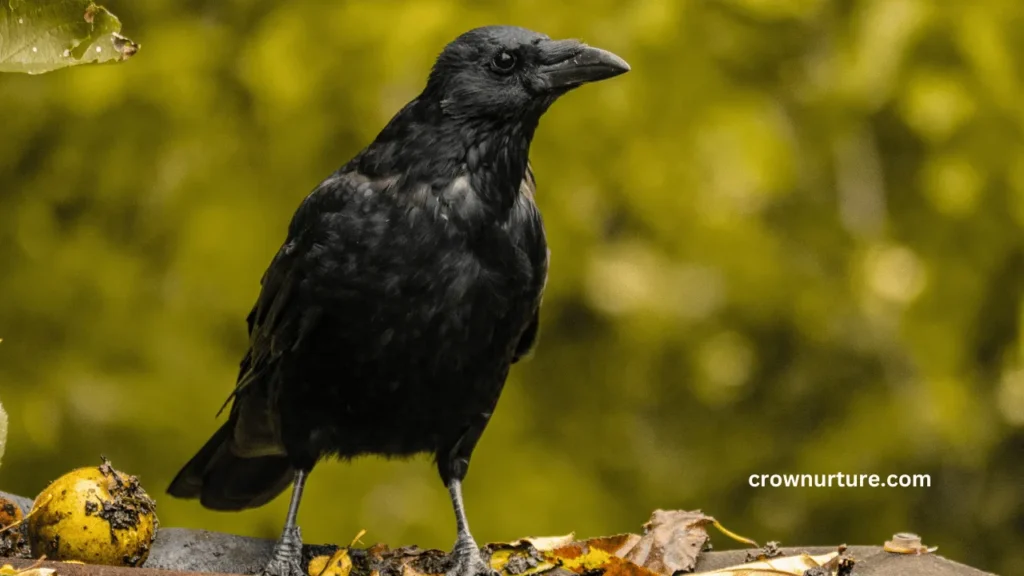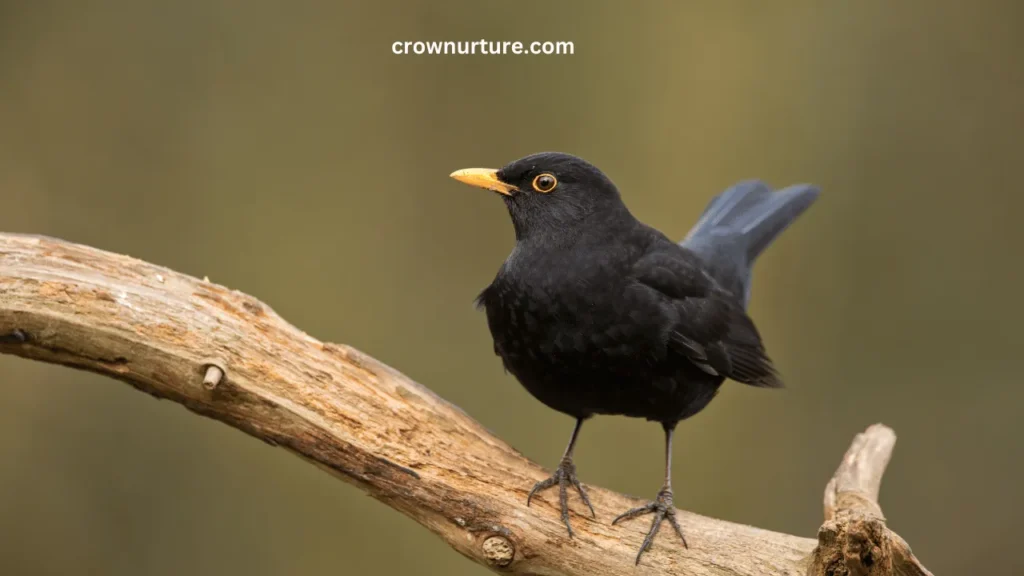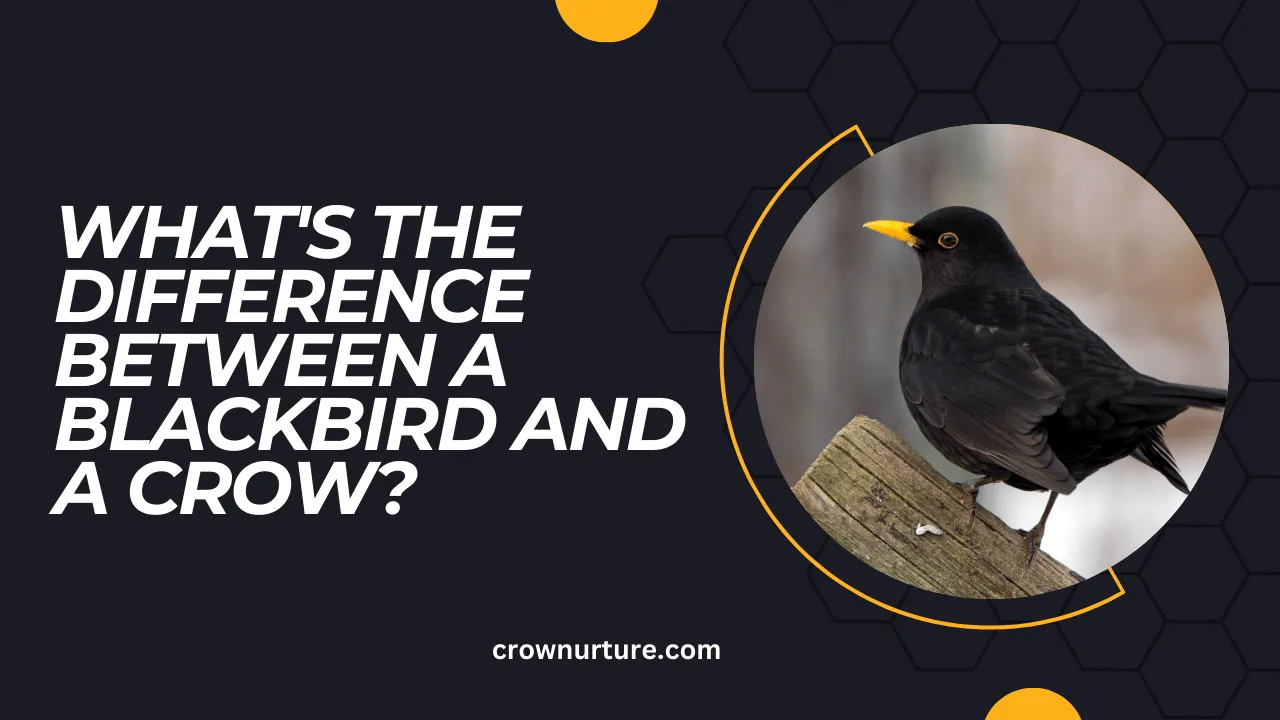Have you ever seen a black bird perched on a branch and wondered if it’s a crow or something else entirely? Birds with dark feathers are often lumped together, but the truth is far more fascinating.
Crows and blackbirds may share a similar hue, but they are worlds apart in size, behavior, and ecological roles. Recognizing the differences can deepen your understanding of these intriguing creatures and their significance in nature.
Crows, members of the Corvidae family, are known for their intelligence, adaptability, and distinctive “caw” sounds. Blackbirds, on the other hand, belong to the Icteridae family, encompassing a variety of species, some of which aren’t entirely black.
While their dark plumage creates confusion, these birds differ significantly in their physical characteristics, songs, and habits. Understanding the distinctions between blackbirds and crows isn’t just for birdwatchers.
It’s about appreciating the diversity of life around us and recognizing the unique roles these birds play in our environment. In this article, we’ll explore how to tell these two bird types apart and uncover the fascinating traits that make them stand out in the avian world.

Contents
- 1 1. Physical Differences
- 2 2. Vocalizations
- 3 3. Behavior and Ecology
- 4 4. Addressing Common Misconceptions
- 5 5. Ecological Roles
- 6 Conclusion
- 7 FAQs
- 7.1 1. Are blackbirds and crows the same species?
- 7.2 2. Can blackbirds and crows live in the same habitat?
- 7.3 3. Why do crows appear larger than blackbirds?
- 7.4 4. Do crows and blackbirds have different diets?
- 7.5 5. Which bird is more intelligent, a crow or a blackbird?
- 7.6 6. Can blackbirds mimic sounds like crows?
1. Physical Differences
- Size and Shape:
Crows are larger birds with sturdy, heavy beaks and a wedge-shaped tail. They can grow up to 20 inches long, making them noticeably bigger than most blackbirds. Blackbirds, on the other hand, are smaller and more slender, with pointed tails and beaks suited for delicate feeding. - Plumage:
While both birds can appear black, crows often have glossy feathers with iridescent shades of purple or blue, especially in sunlight. Some blackbirds, such as red-winged blackbirds, display striking red and yellow wing patches, while others have subtler brown or streaked plumage. - Beak Shape:
Crows have strong, robust beaks, ideal for cracking hard seeds or tearing flesh. Blackbirds’ beaks are more slender and pointed, perfect for probing soil or picking small insects and seeds.
2. Vocalizations
- Crow Calls:
Crows are known for their iconic “caw” sounds, which vary in pitch and intensity. They also produce a range of croaks, squawks, and clicks, showcasing their complex vocal abilities. - Blackbird Songs:
Blackbirds are famous for their melodious songs. Species like the common blackbird in Europe produce flute-like notes, while others, like red-winged blackbirds, offer a mix of trills and chirps. Their vocalizations are often used to attract mates or defend territory.

3. Behavior and Ecology
- Social Behavior:
Crows are highly social and often gather in large flocks, especially during roosting. They display remarkable intelligence, including tool use and problem-solving. Blackbirds, while sometimes seen in groups, are more likely to pair off during breeding seasons, focusing on raising their young. - Diet:
Both birds are omnivores, but their diets differ. Crows eat almost anything, from insects and seeds to carrion and small animals. Blackbirds primarily consume insects, grains, and berries, making them more dependent on seasonal food availability. - Habitat Preferences:
Crows are incredibly adaptable, thriving in urban, rural, and forested areas. In contrast, blackbird habitats vary by species, with some preferring wetlands and others open grasslands or forest edges.
4. Addressing Common Misconceptions
- “All Black Birds Are Crows”:
This is a common misconception. While all crows are blackbirds in color, not all blackbirds are crows. The term “blackbird” refers to a broader group of species within the Icteridae family. - Blackbird Diversity:
Not all blackbirds are entirely black. Species like the red-winged blackbird or Brewer’s blackbird showcase vibrant markings or subtle plumage variations. Recognizing these differences highlights the diversity within the blackbird group.
5. Ecological Roles
- Crows’ Role in Ecosystems:
Crows act as scavengers, cleaning up carrion and reducing waste. They also help control pests, disperse seeds, and occasionally prey on small animals, maintaining balance in ecosystems. - Blackbirds’ Role in Ecosystems:
Blackbirds contribute by controlling insect populations and spreading seeds through their droppings. Their role as pollinators in some cases further underscores their ecological importance.
Conclusion
Although crows and blackbirds share similarities in their dark feathers, their differences are striking when you know what to look for. From their size and plumage to their vocalizations and behaviors, these birds showcase unique traits that reflect their distinct ecological roles.
Crows are the larger, more social problem-solvers, while blackbirds are smaller, often solitary singers with diverse habits and habitats. Understanding these differences not only enhances our appreciation of birdlife but also underscores the importance of conserving their habitats.
These birds, common as they may seem, play vital roles in maintaining the health of ecosystems worldwide. By paying closer attention to the birds around us, we deepen our connection to the natural world and gain a greater sense of its beauty and complexity.
FAQs
1. Are blackbirds and crows the same species?
No, blackbirds and crows are entirely different species. Crows belong to the Corvidae family, while blackbirds are part of the Icteridae family.
2. Can blackbirds and crows live in the same habitat?
Yes, blackbirds and crows can coexist in overlapping habitats, such as urban areas, forests, and fields, but they often have different ecological niches.
3. Why do crows appear larger than blackbirds?
Crows are naturally larger birds, averaging 17–20 inches in length, compared to the smaller size of blackbirds, which typically range from 8–10 inches.
4. Do crows and blackbirds have different diets?
Yes. Crows have a broader diet, including carrion, insects, fruits, and small animals. Blackbirds mostly eat insects, seeds, grains, and fruits.
5. Which bird is more intelligent, a crow or a blackbird?
Crows are among the most intelligent birds, capable of using tools and solving complex problems. Blackbirds, while smart, do not exhibit the same advanced behaviors.
6. Can blackbirds mimic sounds like crows?
Blackbirds typically do not mimic sounds. Crows, however, can mimic human speech and other noises, though this behavior is less common than in parrots.








